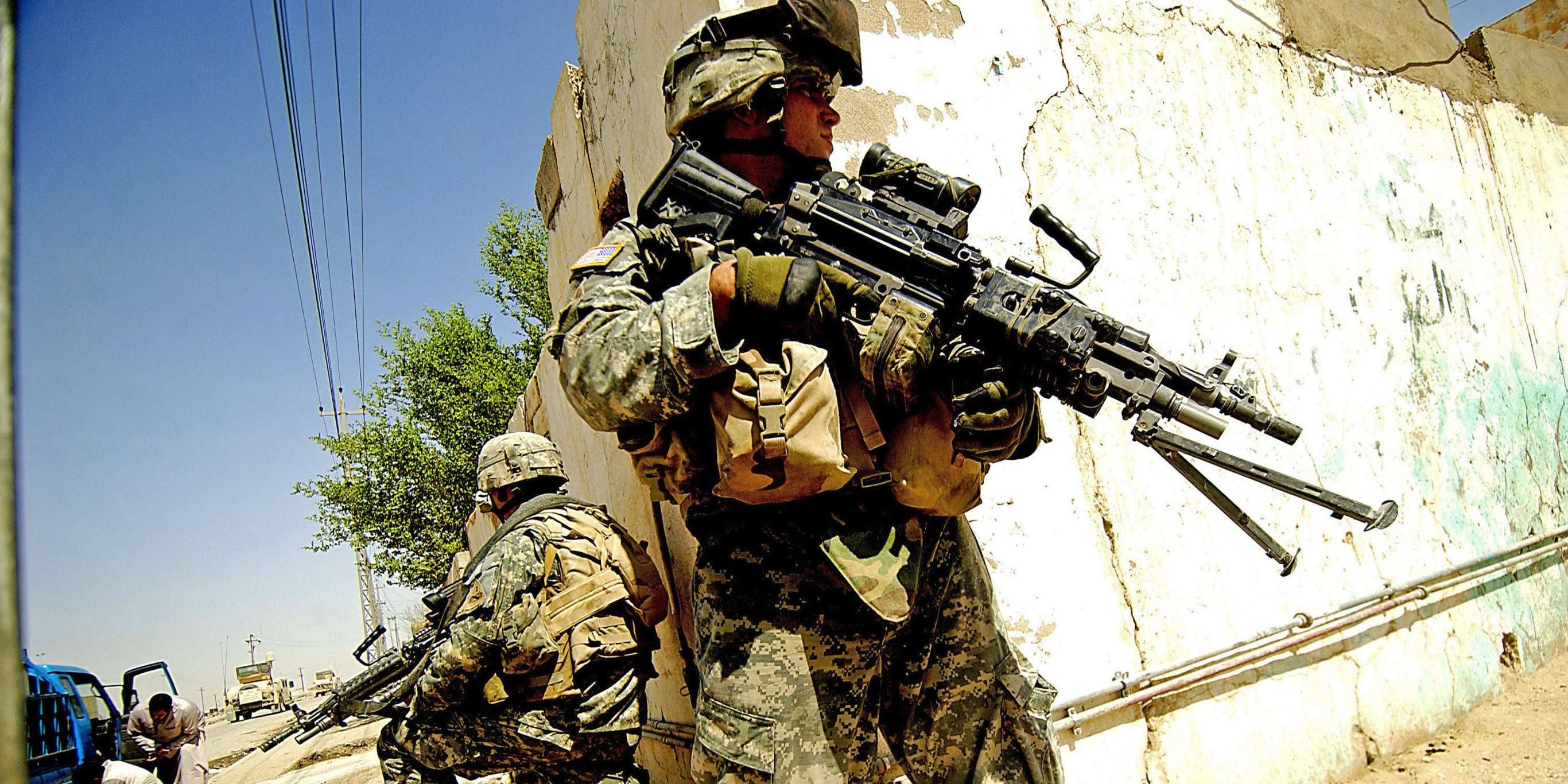The last words of a heroic Iraqi interpreter who sacrificed himself to save American soldiers from a suicide bomber were: "Take care of my son. Take care of my wife." US Special Forces troops are now fighting to honor that dying request.
When a suicide bomber detonated his vest during a vehicle inspection near the Syrian border in September 2007, Barakat Ali Bashar put himself between the bomber and then-Staff Sgt. Jay McBride. Bashar, a new father of only a week, was critically wounded in the attack, and he died at a military hospital in Mosul.
Bashar "had dozens of ball bearings in his body causing injuries that nobody could have survived," McBride, a former medic, told Stars and Stripes, adding, "I owe him my life."
Bashar, described as "kind of young and a little more western than your typical Iraqi," served as an interpreter for US Special Forces fighting Al Qaeda in northern Iraq. After his death, his family received some financial compensation from the US government, but they remained in Iraq, a country later overrun by the Islamic State.
The family, already a target because of their Yazidi heritage, was also in danger because of Bashar's work with the US military. They fled their home near Mount Sinjar, leaving behind their personal possessions and all evidence Bashar had served with the US Army, and headed to a refugee camp in Kurdistan, where they still live today. Bashar's family emailed Stars and Stripes and revealed that they live in constant fear.
One of the problems encountered during the visa application process was the lack of proof that Bashar had served with the US military. The family has since obtained written proof that Bashar "was declared dead in a U.S. Army hospital and he was an interpreter who served with [U.S. forces]." They are awaiting a follow-up interview with the State Department.
McBride and other US veterans have been writing letters and petitions in support of the family's special visa application since 2015. "Is this how you treat a family of someone who worked five years with the U.S. Army; someone who was loyal to the U.S. and Iraq; someone who gave his life serving with U.S. Army soldiers and trying to protect them?" McBride told Stars and Stripes, adding that he would happily put the family up at his house if that was an option.
Bashar "never faltered in his commitment to help American forces, even after his family was threatened and their names were placed on a list that was circulated around the region describing him as a traitor for supporting American forces," Sgt. 1st Class Michael Swett, another Special Forces soldier, wrote in support of the family. "He believed in the American dream even more than we did. Unfortunately, [Bashar] never realized his opportunity to see the country that he sacrificed so much for."
"We, the people of the United States of America, put this family at risk and I feel it is our duty as a civilized nation to [ensure] their safety," Army Master Sgt. Todd West wrote in a separate letter.

HumanKapital_ on September 8th, 2018 at 06:39 UTC »
We have a history of sacrificing those who fought for us. See Hmong after Vietnam
Waldo_Pepper62 on September 8th, 2018 at 05:07 UTC »
They should not have to fight for this it should be automatically granted.
vanishing_point on September 8th, 2018 at 04:30 UTC »
This is nothing new. The US government made promises to the Hmong in Vietnam and largely left them to fend for themselves.